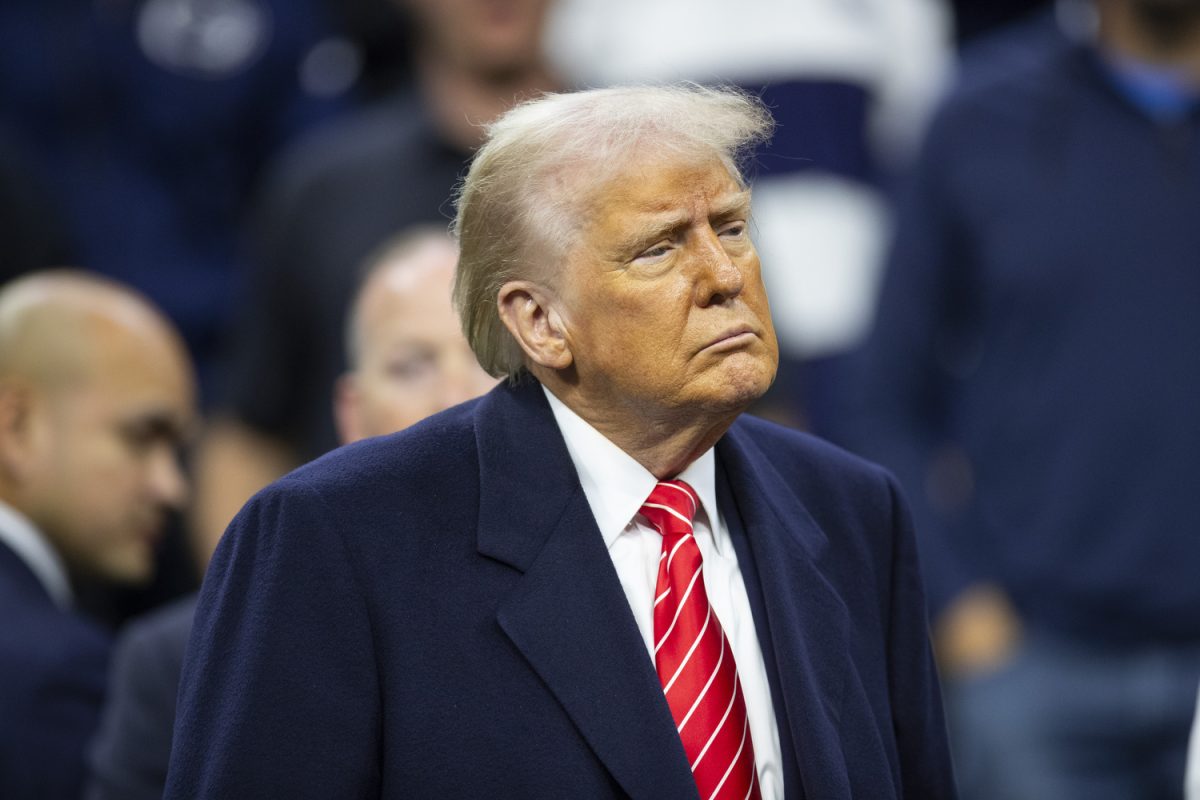We are lucky to spend our days teaching and talking with you about the role of law in our state and nation. As individual citizens, we hold a range of views about contemporary political debates, but as law professors we share a commitment to ensuring that the next generation of lawyers understands the bedrock principles that sustain our legal system. In that spirit, we write to share our collective concerns about the unprecedented pressures facing lawyers and law firms in the country.
The Great Seal of the State of Iowa features the phrase “our liberties we prize, and our rights we will maintain.” Lawyers have the professional honor of helping friends and neighbors who find themselves facing tough odds: small businesses getting off the ground; families seeking to preserve farms over generations; employees who haven’t been paid what they’re owed; and older Iowans worried they won’t be able to age with dignity.
Lawyers’ work is possible because the American legal system abides by a concept known as the rule of law. The rule of law — as opposed to the rule of men — values impartial administration of the law and equal accountability before it. For more than two centuries, that notion has sustained our democracy through times of crisis and conflict.
Over the past few weeks, the president has issued several executive orders imposing sanctions against law firms whose attorneys have participated in past prosecutions of the president or donated time to challenge the constitutionality of administration actions. Among other provisions, those orders bar firm lawyers from entering federal government buildings, apparently including the courtrooms where client rights and liberties are adjudicated. If law firms accept the terms of the orders, they risk losing clients who doubt their ability to function effectively. If they resist the orders, they must divert time and money into court challenges. Either way, impartial administration of the law and equal accountability before it suffer.
When government actors threaten to penalize individual law firms for taking on controversial clients or outspoken attorneys, the legal system can no longer assure all litigants a fair chance to say their piece and accountability before the law no longer appears equal. When government actors offer to lift those penalties for firms that pledge to conform their choice of clients and causes with official preferences, administration of the law no longer appears impartial.
We appreciate that reasonable people will — and should — debate the boundaries of zealous advocacy and the merits of individual lawsuits, especially when they raise charged political issues. At the same time, we believe that a working system of justice must provide even the most unpopular clients their day in court, represented by lawyers who advocate for them without fear of executive reprisal.
The Model Rules of Professional Conduct assign lawyers, as officers of the legal system, “special responsibility for the quality of justice.” Our students are poised to assume that responsibility when they leave the Boyd Law Building. We support their desire to pursue rights and liberties for Iowans and others. A fair and impartial legal system is critical to their future, and to yours.
All faculty who join this letter do so in their individual capacities and on the basis of their expertise on the rule of law in U.S. society; they do not speak on behalf of the College of Law or the University of Iowa.
-Hope Metcalf, John Allen, Bethany Berger, Patrick Bigsby, Larisa Bowman, Lois Cox, Mihailis Diamantis, Stella Burch Elias, Bram Elias, Daria Fisher Page, Lorraine Gaynor, Sheldon F. Kurtz, Andrew Jordan, Kate Melloy Goettel, Megan Graham, Alison K. Guernsey, Aaron Page, Stephanie Patridge, Jason Rantanen, Shannon Roesler, César F. Rosado Marzán, Leonard Sandler, Sean Sullivan, June Tai, Cristina Tilley, John Whiston



